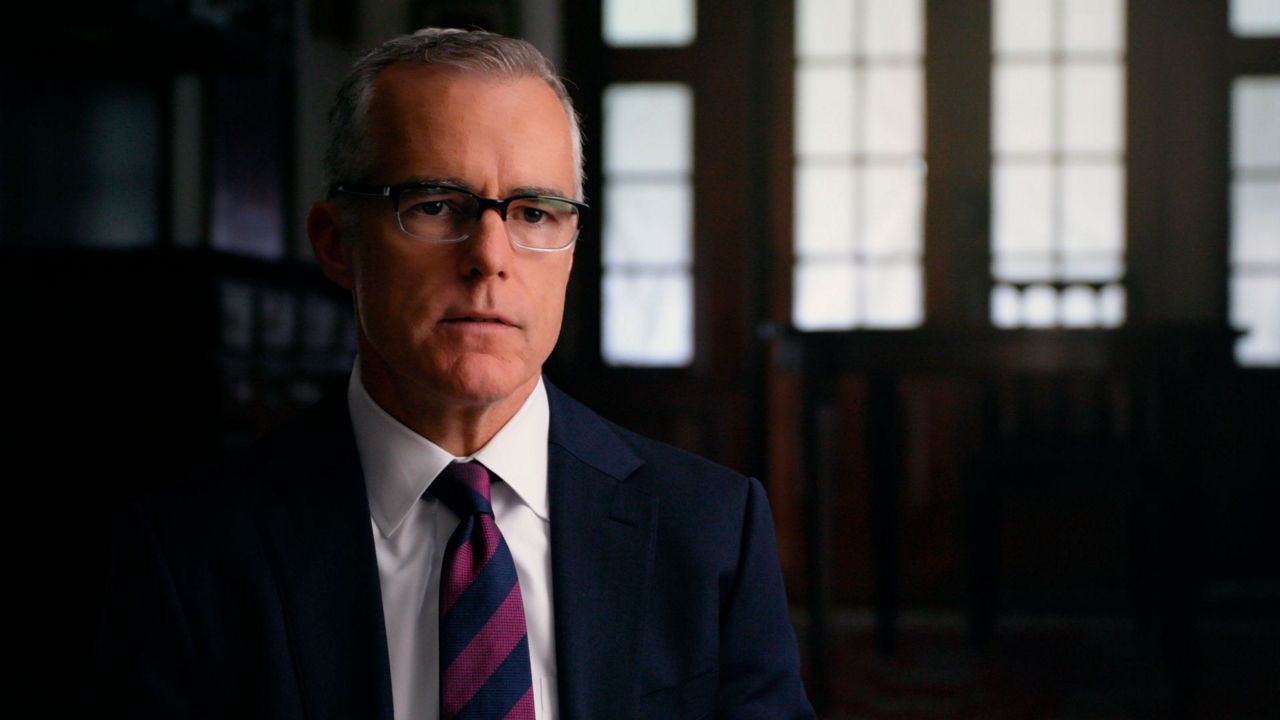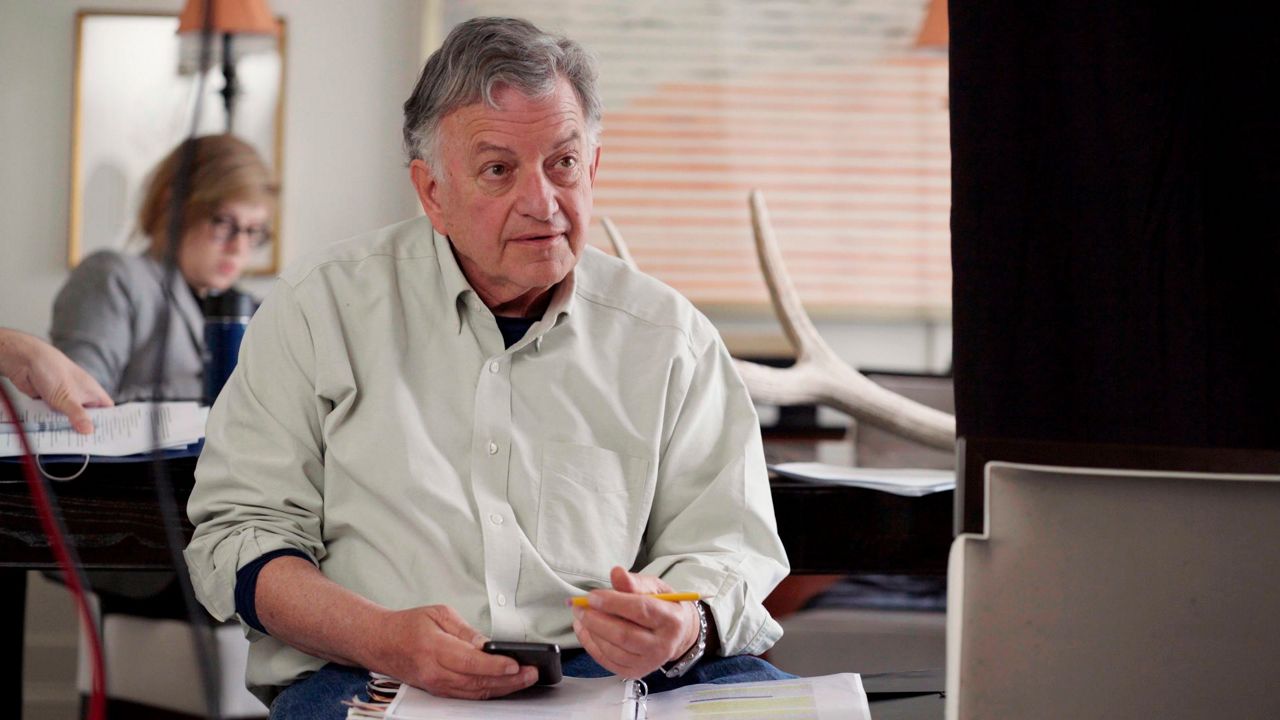Let's take a trip back in American history, but not too way back. To a time not that unfamiliar — the last presidential election. Do you remember all the stuff swirling around in 2016?
Fancy Bear. Paul Manafort. Julian Assange. Guccifer 2.0. George Papadopoulos. The Steele dossier. The “Access Hollywood” tape. The FBI’s “Crossfire Hurricane” investigation. James Comey and Roger Stone.
Remember how they all fit together? No? You're not alone.
Enter director Alex Gibney with HBO's two-part “Agents of Chaos,” a timely yet dispiriting look at how a whole bunch of Russian dirty tricks helped Donald Trump into the White House — just in time for a possible replay.
“I am interested in figuring out this Trump-Russia thing. What was that all about?” asks Gibney, who has previously made documentaries on Steve Jobs and Scientology. (He also did a film about Julian Assange, who naturally shows up here, too, thanks to WikiLeaks).
“Every time someone asked me what this movie was about, I'd say, ‘Well, how much time do you have?’” Gibney asks at the beginning. It turns out: Almost four hours, which will tax even political junkies.
“Agents of Chaos” is a rabbit hole that's fascinating but ultimately frustrating. It's a well-documented account of what seems to have happened in 2016 without breaking much new ground. These days, if you come at the king, you best not miss. If you just recount, you missed.
Part one lays down the background, exploring the rise of Kremlin-backed trolls, Russia's interference in Ukraine and then Vladimir Putin's spies turning their attention to America to disrupt the 2016 vote, which Gibney calls “the most chaotic election of our lifetimes.”
Part two — co-directed with Javier Alberto Botero — is how Trump fit into all this, with the subsequent investigations into shadowy and oddball characters: Carter Page, George Papadopoulos, Michael Flynn and Paul Manafort. Remember collusion?
“Being an agent of chaos was part of Trump’s brand. More chaos, the better,” the film says.
The film has frank assessments by former officials at the National Security Council and Department of State, as well as journalists Michael Isikoff and Margarita Simonyan. Former Hillary Clinton campaign head John Podesta, whose emails were hacked, speaks of the breach, as well as former CIA director John Brennan, former Sen. Harry Reid and former FBI deputy director Andrew McCabe. Page defends himself from collusion and Trump business associate Felix Sater lays out what he knows.
The look at Russian meddling in Ukraine in 2014 is a highlight, explaining how trolls created fake news sites to drive a wedge in that country, sowed distrust, used anti-Semitism and painted opponents as neo-Nazis. The left and the right were lost in their own internet bubbles. Sound familiar?
The film argues that Russian military intelligence used much of that playbook two years later in America. While Trump was clearly more pro-Putin than Clinton, the goal was less a Trump win as much as sowing distrust and alienation. Russian trolls were pushing both Blue Lives Matter and Black Lives Matter and trying to dampen turnout.
Twitter accounts of seemingly solid U.S. citizens were actually run by a team in St. Petersburg, often amplifying contradictory falsehoods in a “carousel of lies.” Some lies — like the murder of Democratic staffer Seth Rich — jumped to shady online sites like Infowars, and eventually mainstream media.
While paid trolls were doing that, Russian intelligence was actively hacking. The Democratic National Committee's emails were dumped on the Russian online front DCLeaks or appeared on WikiLeaks, revealing that Democratic officials favored Clinton over her rivals. The media, wanting to seem balanced when it came to Trump, seized on the controversy and elevated it.
“It was a three-ring circus of election meddling,” the film concludes.
The DNC email dump often got conflated with an earlier controversy when Clinton was accused of misusing the handling of emails while Secretary of State, meaning Clinton could never escape her name associated with an email scandal, a controversy inadvertently fed by the FBI that ultimately had little heat, much less smoke.
The problem with the film is that — after four hours — it can't generate much heat, either. “Agents of Chaos” gives us a great blueprint of how all this happened. Too often daily revelations are overwhelming and Gibney does a superb job linking them coherently.
But Trump's odd orientation toward Putin is left to pure speculation, often getting no closer than, “on social media, Russian trolls harmonize with the Trump chorus.” Gibney can't go further than saying some things in the Steele dossier might be true. That's not good enough. He says the president's Russian ties are “pretty obvious” and conducted with “winks and nods.”
After such a long trip, it's both too much and not enough.
“Agents of Chaos,” an HBO release, is rated TV-MA for language and disturbing imagery. Running time: Part one is 117 minutes, part two is 119 minutes. Two and a half stars out of four.
___
Online: https://www.hbo.com/documentaries/agents-of-chaos
___
Mark Kennedy is at http://twitter.com/KennedyTwits
Copyright 2020 The Associated Press. All rights reserved. This material may not be published, broadcast, rewritten or redistributed without permission.




